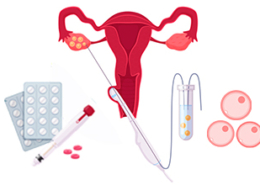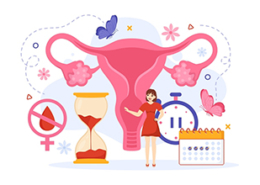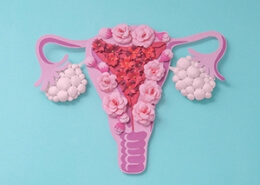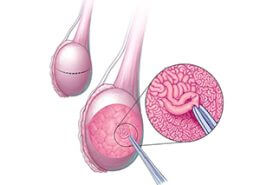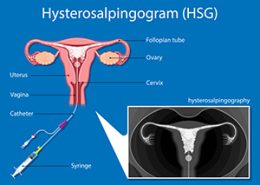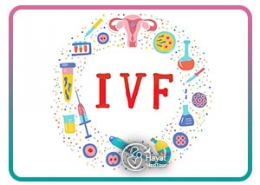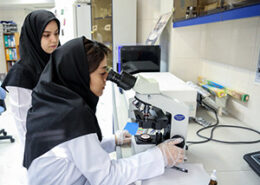Male fertility: 9 Tips for Men Before Doing IVF
One of the big dreams of every couple is to have children and the sweet experience of becoming parents. But some couples face problems in achieving this dream. Factors causing infertility in couples are related to women, and men’s health also plays an essential role in a couple’s fertility. Fortunately, with the advancement of science, many infertile couples can embrace their child by using infertility treatment methods such as IVF and ICSI.
The probability of IVF success is different for different couples, and younger couples have a higher chance of success. However, being prepared before starting the IVF process can increase the chances of treatment success. Therefore, improving the lifestyle and following some strategies before starting the treatment process can improve the quality of eggs and sperm and can increase the couple’s readiness for treatment. In this article, there are 9 recommendations for men to prepare before IVF. If you are also facing fertility problems and are preparing to do IVF, stay with us in this article.
No.1 Improve your diet

We often ignore the fact that the quality of the diet can affect reproductive health. But scientific research shows that nutrition has a direct effect on the number and quality of sperm. Considering that the process of sperm production and maturation takes about 3 months, it is better to use a healthy and balanced diet at least 3 months before the start of the IVF process to increase the quality of sperms. Every person should receive a variety of nutrients, minerals, and vitamins in their diet. Foods that can help you to increase the number, motility, and quality of sperm are:
- Fruits and vegetables
- Low-fat dairy products
- Lean proteins such as chicken and eggs Foods containing omega-3 fatty acids such as fish, shrimp, walnuts, chia seeds, flax seeds
- Foods containing selenium such as wheat bran, whole grains, walnuts, almonds, hazelnuts, sesame
- Foods containing zinc such as poultry meat, wheat germ, and pumpkin seeds Foods containing vitamin D such as tuna, salmon, cheese, and egg yolk
- Foods containing vitamin E such as nuts, sunflower seeds, olives, and dark green leafy vegetables
- Foods containing vitamin B12 such as cabbage, liver, milk, eggs, and poultry meat Foods containing vitamin C such as citrus fruits, broccoli, bell peppers, and tomatoes
One of the most important factors that affects the quality of sperm is sufficient water consumption. Therefore, it is recommended to drink 2 liters of water (8 glasses) daily.
Another influencing factor in sperm quality is the balance of sex hormones involved in the process of sperm production. Foods containing soy, processed foods, and canned and packaged foods can negatively affect hormone balance. So, long-term use of these foods can disrupt the natural secretion of male sex hormones and, as a result, stop sperm production.
Therefore, it is recommended to avoid consuming foods containing soy, processed foods, and fast foods before IVF.
No.2 Control your weight
Being overweight significantly reduces sperm quality. Obesity can affect the structure and tissue of the testicle and affect the process of sperm production. Scientific studies show that obesity can reduce the number and motility of sperm and cause changes in the shape and damage to the DNA of sperm. Therefore, it is recommended to control your weight and reach a suitable BMI before doing IVF to increase the chances of treatment success.
No.3 Do regular physical activity
Testosterone is a male sex hormone that plays an important role in male fertility.
Several studies have shown that regular exercise can increase testosterone levels and improve men’s sexual performance and sperm quality. In addition, exercise is one of the ways to stay fit and achieve a balanced weight. Therefore, people who are overweight are advised to lose weight with regular exercise before doing IVF.
But it should be noted that intense physical activity can have the opposite effect and cause drastic hormonal changes and reduce sperm quality. Therefore, it is recommended to replace heavy sports with light aerobics to improve sperm quality.

In addition to physical health, exercise also affects mental health. Therefore, exercise is one of the best relaxation techniques to combat anxiety. Hence, doing regular exercise and yoga before the IVF can help a lot to control your stress during the IVF process.
No.4 Keep the testicles cool
Excessive heat can affect the function of the testicles and cause damage to the sperm. The safe temperature for sperm is 34 to 35 degrees centigrade, and if the temperature of the testicles increases, the sperm production and maturation process will be complicated. Sperm produced at high temperatures is of poor quality and reduces the chances of IVF success. Therefore, before doing IVF, it is recommended to keep your testicles cool and avoid saunas, Jacuzzis, hot water baths, wearing tight underwear, etc. Also, riding a bicycle, putting a laptop on your feet, sitting for a long time, and doing jobs such as baking and laundry are also considered a threat to sperm health, and it is better to avoid them until IVF is done.
No.5 Avoid smoking and alcohol consumption
Smoking increases the number of free radicals in your body. Free radicals, by damaging the DNA of the sperm, reduce the quality of the sperm and have a negative effect on the quality of the embryo formed in the IVF process. Alcohol consumption can also lead to sperm DNA damage. Therefore, it is recommended to stop smoking and drinking alcohol before doing IVF.

No.6 Have enough sleep
The secretion of the testosterone hormone follows the body’s sleep pattern. Men who have enough sleep and sleep before midnight, more testosterone hormone is released in their bodies, and they have healthier sperm. Scientific research shows that the ideal amount of sleep for sperm health is between 6 and 8 hours. Sleeping less than 6 hours or more than 8 hours can reduce sperm fertility by 40%. Therefore, to have high-quality sperm, it is better to correct your sleep pattern before doing IVF.
No.7 Avoid exposure to chemical substances
Long-term exposure to some chemicals, such as pesticides, chemical fertilizers, lead, nickel, mercury, benzene, radiation, etc., can reduce the quality and number of sperm. These chemicals and contaminants can be found in the workplace, the air, and even in some personal care products. Therefore, before performing IVF, it is recommended to avoid doing things that expose you to these chemicals.
No.8 Pay attention to the doctor’s recommendations
In the infertility treatment process, trust your doctor and pay attention to her or his recommendations. Before starting the IVF process, the specialist doctor checks the health and quality of the sperm by performing tests and preliminary examinations. If your sperm is of good quality, it can be used for egg fertilization in the same cycle. It is usually recommended to abstain from ejaculation and intercourse for 3 to 4 days before the sperm sample is collected for IVF. This can help increase the quality of the sperm sample.
If the number and motility of sperm are low in the initial tests, it is necessary to take medicinal supplements for about 2 months to strengthen the sperm. In cases where the tests show azoospermia, it is necessary to perform a testicular sampling to extract sperm.

Taking some medications can negatively affect male fertility. If you are using certain medications, be sure to inform your doctor before starting IVF. The doctor may decide to stop or replace some medications to increase the chances of success of the treatment.
No.9 Manage your stress
IVF is a stressful process for couples. A high level of stress can disrupt the balance of hormones in the body and affect a couple’s fertility. Stress in men increases the level of steroid hormones and disturbs the production of sperm.
Reducing stress during the IVF process is one of the difficult tasks for any couple. However, several studies show that using stress management techniques before starting the IVF process helps increase IVF success. In addition to managing your stress, you should also take care of your spouse and help him reduce stress.
Contact us for more information about infertility treatment in Iran and consultation with specialist doctors. We also offer a dedicated online consultation service for male fertility to help you improve sperm count and motility before treatment.

